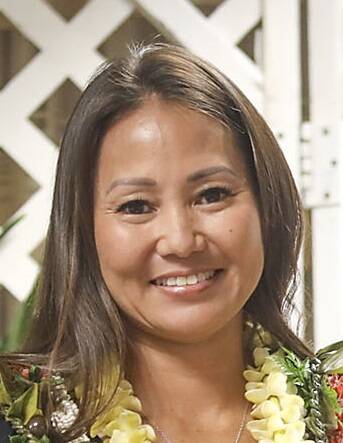FDA’s COVID-19 changes worry local health professionals


Big Island health professionals are concerned changes to U.S. Food and Drug Administration rules for COVID-19 vaccines could limit their availability for healthy people under 65 who get vaccinated to protect vulnerable family members.
The FDA on Tuesday announced the changes, which call for placebo-controlled trials on any vaccines that have been updated to be effective against newly discovered strains of the respiratory virus before they can be approved for the general public.
ADVERTISING
The rules say vaccines will be approved without the lengthy trials for people over the age of 65 or who have conditions that leave them more vulnerable to severe illness, including obesity, diabetes and heart disease. However, healthy younger people who want to get boosters because they share space with immuno-compromised family members — such as people going through chemotherapy or recovering from an organ transplant — could experience a lack of insurance coverage for the shots.
“If the FDA does not approve a vaccine for a population, then the vaccine will likely not be covered by insurers for that population, effectively ending access to the vaccines for a majority of Americans,” said Chris Piel, medical director for Hawaii Island Community Health Center. “This essentially ends choice for people under 65 years of age.”
Piel also fears the updated approval requirements “will spread additional doubt regarding a vaccine that hundreds of millions of Americans have already taken.”
A Reuters article about the changes from Tuesday said vaccine manufacturers have expressed concern that the newly mandated trials could cause people under 65 seeking the vaccine to not have access to the newest versions until after their effectiveness had passed.
The same piece also quoted Dr. David Boulware, an infectious disease specialist from the University of Minnesota, who said it’s unlikely vaccine makers would conduct trials to receive approval for younger adults because the cost could be “hundreds of millions of dollars,” presenting a new hurdle to broader FDA approval.
Megan Arbles, director of pharmacy operations for KTA Super Stores, shares Piel’s concerns regarding a possible loss of coverage for caretakers seeking to remain fully inoculated, saying they “may face challenges accessing updated vaccines, potentially affecting insurance coverage and out-of-pocket costs.”
She also expressed worry that “the new policy could reduce vaccine availability and may not adequately address long-term COVID risks.”
However, Arbles said “a positive note” about the new guidelines is their alignment with similarly targeted vaccination strategies in the U.K., Canada, and Australia, which she hopes “could potentially boost public trust in the vaccine.”
Arbles said KTA pharmacies addressed a prevalence of misinformation being spread through social media during the pandemic with elevated education efforts to “help patients navigate this information.” Despite her hope that alliance with global trends could ease public trust for the vaccines, her familiarity with people’s initial hesitation during the pandemic makes her concerned the vaccine uptake achieved in recent years could backslide.
“This policy might lead to decreased vaccination rates and increased health disparities, particularly in rural areas like Hawaii Island where access to care is already a concern,” Arbles said.
“The current system for approval of new vaccines has been in place for many years and works well to provide safe and effective vaccines to the public,” the Hawaii Department of Health said in a written statement to the Tribune-Herald. “The current system also strikes a proven balance between timely approval of new vaccines and ensuring the approved products are safe and effective. For example, if COVID-19 vaccines had taken a year longer to be approved, millions of lives would have been lost nationally.”
The DOH echoed Piel and Arbles’ concerns that the changes to the FDA’s policy could create more public distrust about vaccines beyond the COVID inoculation.
“There is a risk of having a negative impact on public trust in vaccines more broadly,” the department said. “The DOH believes it is extremely important that while the US Department of Health and Human Services proposes to change its regulatory framework for the COVID-19 vaccine, it expends greater effort supporting vital immunization programs and recommending other safe and effective vaccines such as MMR” (measles, mumps and rubella).
Email Kyveli Diener at kdiener@hawaiitribune-herald.com.






